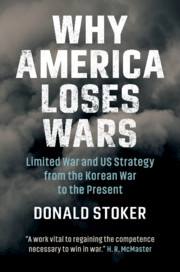Contemporary studies of conflict have adopted approaches that minimize the importance of negotiation during war or treat it as a constant and mechanical activity. This is strongly related to the lack of systematic data that track and illustrate the complex nature of wartime diplomacy. I address these issues by creating and exploring a new daily-level data set of negotiations in all interstate wars from 1816 to the present. I find strong indications that post-1945 wars feature more frequent negotiations and that these negotiations are far less predictive of war termination. Evidence suggests that increased international pressures for peace and stability after World War II, especially emanating from nuclear weapons and international alliances, account for this trend. These original data and insights establish a dynamic research agenda that enables a more policy-relevant study of conflict management, highlights a historical angle to conflict resolution, and speaks to the utility of viewing diplomacy as an essential dimension to understanding war.
